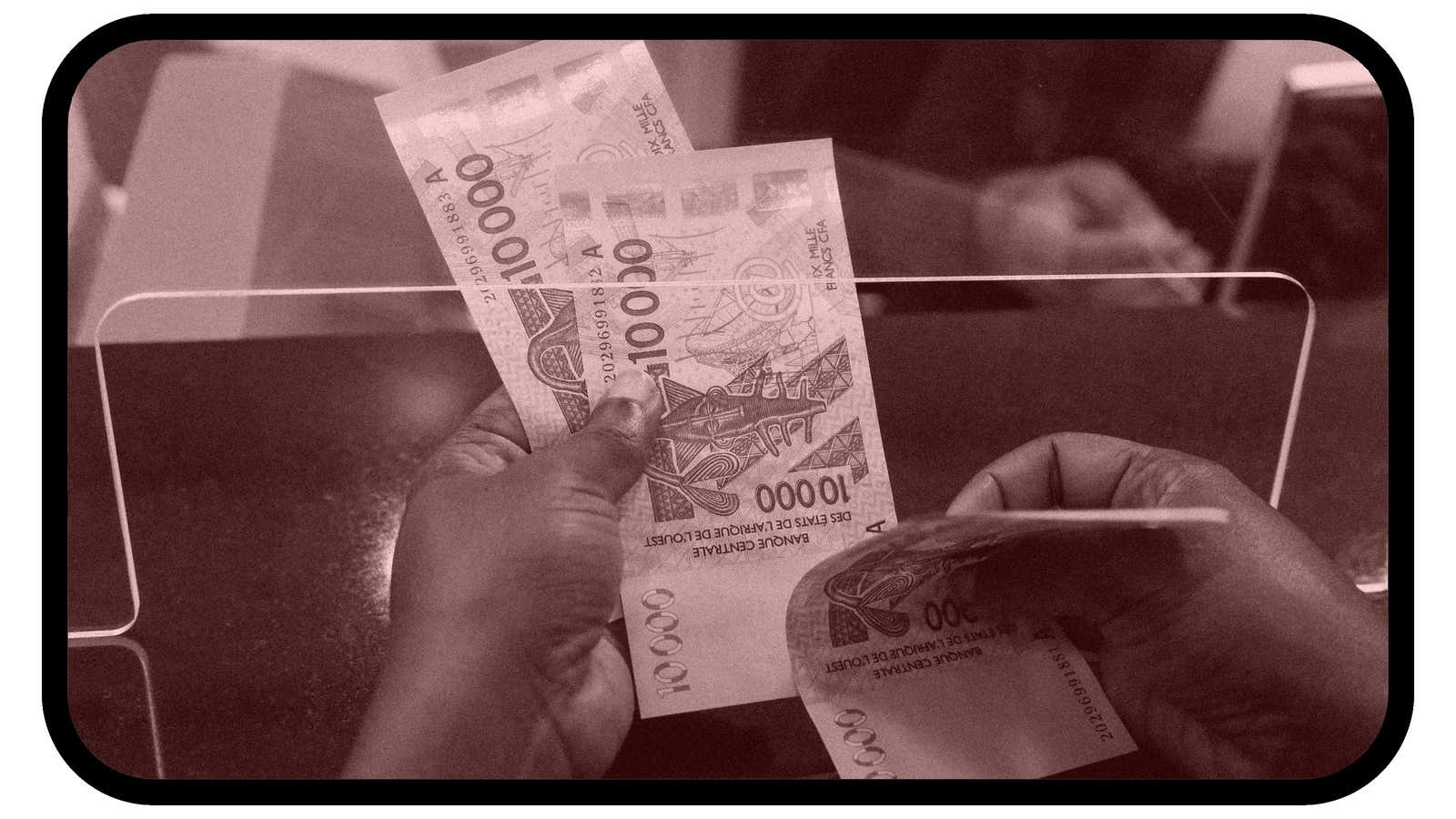The amounts raised by African technology startups over the past year have been eye-popping and headline-grabbing.
Flutterwave, a payments processing company, raised $170 million in March as it became Nigeria’s third unicorn—a startup valued at at least a billion dollars. OPay, a Lagos-based mobile money company landed $400 million last month, led by SoftBank, the Japanese Uber investor with a love of massive investments. In Senegal, Wave, another mobile money provider, became Francophone Africa’s first unicorn when it received a $200 million injection of funds.
Simply put, there’s no better time to be an African startup.
But the well-deserved back-patting obscures a major fact about these African startups: when it’s time to raise money, they often have to look abroad. US venture capital firms have especially taken a liking to the African startup scene. Tiger Global-led Flutterwave’s raise; Sequoia has been active in the market. SoftBank’s investment in OPay was its first foray into Africa, with many more expected to come.
Foreign VCs speak of excitement among their class as many seek to invest in the burgeoning tech companies that dot Nairobi, Lagos, Cape Town, and several points in between. Stripe’s over $200 million acquisition of fellow payments processor Paystack shows that an exit is now realistic.
Economic realities and low interest rates in the West mean that capital is sloshing around at record rates, with VCs constantly looking for where to invest. But what’s missing from this frenzy is local funders. And a vibrant local investment community is vital to the health of Africa’s growing tech sector.

Often, local investors make the first bets on promising startups. Relatively small checks of $25,000 to $50,000 for a young startup could sometimes be the difference between keeping the lights on, hiring more staff to push ideas forward, or folding, particularly for female founders. Maya Horgan Famodu, of Ingressive Capital, was an early investor in Nigerian payments startup Paystack, earning a handsome return on investment. So did Olumide Soyombo, co-founder of Voltron Capital, an angel investment fund, and Idris Ayodeji Bello of LoftyInc. Now both have launched new funds to support and find a more diverse set of startups on the continent.
At Ingressive Capital, Horgan Famodu is armed with a $10 million war chest to fund seed and pre-seed tech businesses across Africa, with check sizes up to $400,000. The firm says about 40% of their portfolio companies are founded or co-founded by women.
Early-stage companies currently make up the bulk of startups in Africa. According to Partech, a global VC, early-stage companies accounted for 64% of Africa’s 359 startup funding rounds above $200,000 in 2020, representing $220 million of the $1.4 billion invested in startups on the continent.
It’s hard to overstate the benefits of more local investment in African startups. Foreign funders with big checks rarely splash out cash on early-stage companies. That responsibility, increasingly, falls on the shoulders of local ecosystem funders.
This article is part of Quartz Africa Innovators 2021, the sixth edition of a series that identifies some of the most ambitious and imaginative minds on the continent. The more than two dozen women representing 18 countries and a diverse range of sectors represent the dynamism, entrepreneurial drive, and resilience of millions on the continent. Their innovations show the potential that can be unleashed when women with bold ideas and decisive actions take the lead.
Sign up to the Quartz Africa Weekly Brief here for news and analysis on African business, tech, and innovation in your inbox.
